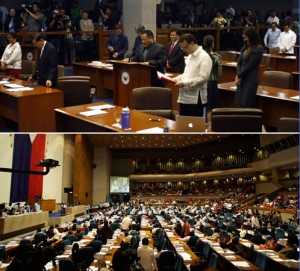A MANILA court judge on Tuesday denied the petition of the Commission on Elections (Comelec) website hacker for access to his computer that was seized by the National Bureau of Investigation, which purportedly contained e-mails he could use as part of his defense.
According to Harold Alcantara, defense lawyer of Paul Biteng, the “correspondence” between the confessed hacker and the NBI would show that it was actually Biteng who alerted the bureau about the vulnerability of the Comelec website before it was hacked in March.
“(Biteng) was not the one who hacked the Comelec website. It was (the hacker group) Anonymous Philippines. Anonymous Philippines actually admitted it,” Alcantara told the Inquirer after a pretrial conference on Tuesday. “Biteng is not associated with Anonymous Philippines.” Manila Regional Trial Court Branch 32 Judge Thelma Bunyi-Medina, however, rejected Alcantara’s manifestation after the public prosecutor objected.
Assistant City Prosecutor Marie Sherwin Cunanan argued that they were “trying to protect…the computer and the cell phone seized from the accused.”
“With all due respect, the charges filed against the accused in this case is for violation of the cybercrime law,” she told the court, adding: “We are not amenable to the suggestion of the defense that the accused be allowed to access the computer.”
After denying Biteng’s petition, Medina set the marking of exhibits on Aug. 22 and the initial presentation of evidence on Sept. 22.
Biteng was arrested by members of the NBI’s Cybercrime Division almost a month after he hacked the Comelec website in March, resulting in “Comeleak” or the massive leak of voters’ information.
After his arrest, the 23-year-old information technology graduate told the Inquirer in an interview that he did it because he was bored. However, he denied he was responsible for the leakage of voters’ information online, saying this was done by two other hackers with whom he shared the codes.


